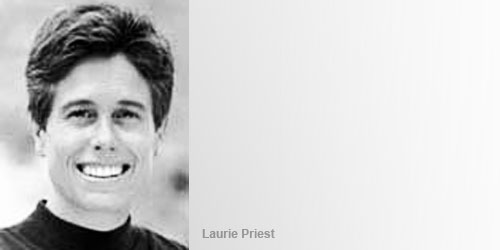By Dan Woog

The OutField
For several years now, the National Collegiate Athletic Association has addressed LGBT issues at its annual convention. The once sparsely attended sessions have mushroomed into key events. High-ranking athletic administrators now look forward to the panel discussions; they ask insightful questions, and acknowledge the importance of the issues raised.
This year's session – held last month in Atlanta – was perhaps the best yet. Nearly 150 athletic directors, faculty representatives and student-governance people heard five panelists discuss the best means of ensuring fair treatment of LGBT student-athletes within their own teams and in their universities overall.
Laurie Priest – the athletic director at Mount Holyoke College – has participated in several NCAA panels. She called this one "wonderful." The feedback was the most positive ever.
"People are really interested in finding ways to support, and be inclusive of, LGBT student-athletes," she said. She was also encouraged at the extent of minority representation at the session. This year's event was the most diverse she's seen.
Priest – and many attendees – were particularly pleased with the emphasis on transgender people. Noting that the NCAA held a "think tank" on trans issues last fall in Indianapolis, she said that the Atlanta session built on that foundation – and re-emphasized the organization's acknowledgment that gender identity must be addressed in sports.
Each of the five panelists addressed a different concern. Mark Schuster, senior dean of students and student conduct at Rutgers University, talked about faculty outreach. Ted Rybka, director of sports media for the Gay & Lesbian Alliance Against Defamation, discussed media relations and language. Pat Griffin, professor emerita in the Social Justice Education program at the University of Massachusetts, tackled current LGBT issues in sport, while Priest offered an athletic director's perspective. Helen Carroll of the National Center for Lesbian Rights spoke about that organization's sports efforts and outreach. Priest said that an encounter shortly after the session illustrated how far awareness has come – but also the downside associated with that heightened awareness.
An administrator approached Priest, and said that the environment on her campus was very open and positive. "She came to our session feeling her school had done it all for LGBT athletes, that everything there was OK," Priest reported. "But listening to the panel, she realized there is more to do. Things like actually reading the school's non-discrimination policy to student-athletes at the beginning of the year could send a very powerful message. We assume that every school knows all the right things to do, but they don't."
An attendee from the Deep South was so impressed with the panel's presentation that she asked them to do another, aimed solely at providing hands-on advice for faculty representatives. "We'll do it," Priest promised. "We'll give you specific ideas for all kinds of issues, like how do you handle athletes who are dating."
Another attendee told Priest that a student-athlete was transitioning at her school. The athletic department was generally receptive of the transgender person – but no one knew what to say or how to help. The panelists' inclusion of transgender issues provided the attendee with important ideas for resources.
Schuster's portion of the panel dealt with how NCAA faculty representatives can reach out to instructors on their campuses, encouraging them to include LGBT sports issues in curriculums and conversations.
Schuster envisions campuses filled with athletic liaisons who are affirming, positive and trained to work with LGBT student-athletes. He wants those liaisons to be easily accessible through well-publicized and highly respected networks.
He told attendees that senior year is critical for LGBT student-athletes. That's when they decide if they want to pursue their sport at the next level, or stop competing – perhaps for the first time in their lives. For athletes who have not yet come to terms with their sexuality, the end of college and the beginning of "the real world" can be an even more stressful time than for other seniors.
Schuster also urged students and faculty to avoid using the term "coming out." "That frames sexuality as a problem," he said. "I prefer the term 'coming in.' That's more collaborative. It implies working with allies to talk about success stories of student-athletes."
"We do tend to preach to the choir at these sessions," Priest admitted. "But the people who came really did want to know more."
Priest was heartened that nearly two-dozen attendees were NCAA interns. They're future administrators; they'll address LGBT sports issues down the road. Hearing about them has to help – both now and in the future.
"Four or five years ago I got the feeling that people wondered why we were talking about all of this," Priest said. "I totally didn't get that this time. A new generation of sports administrators is arriving. Things are going to change."










